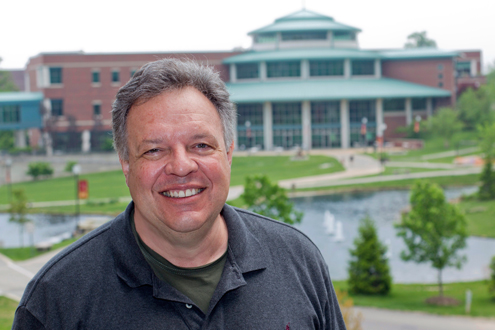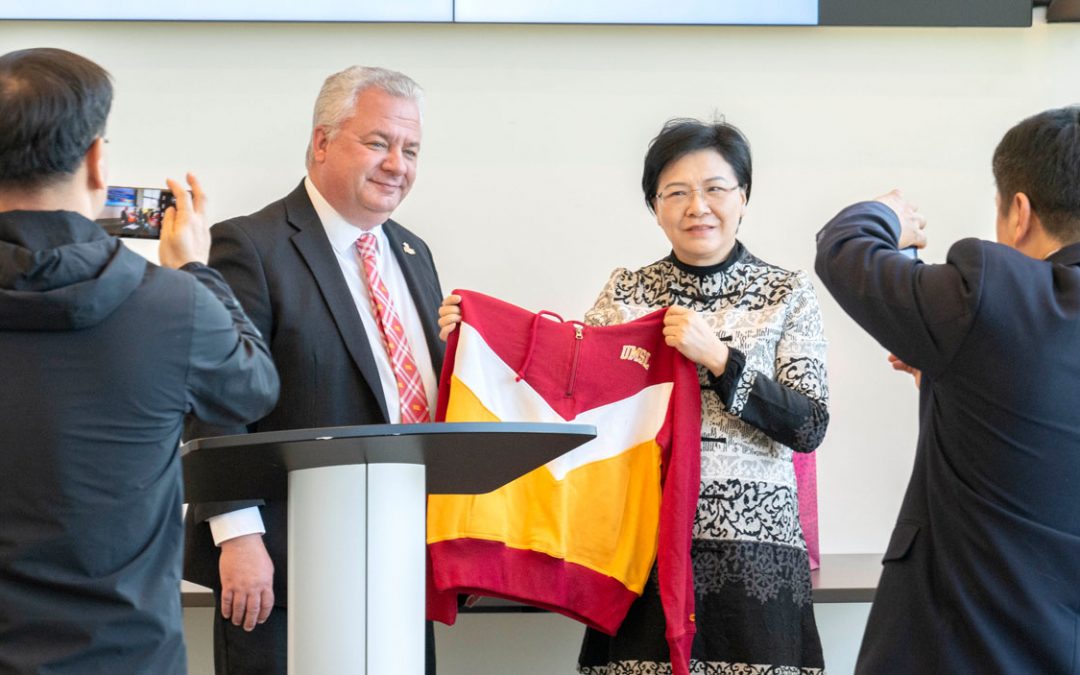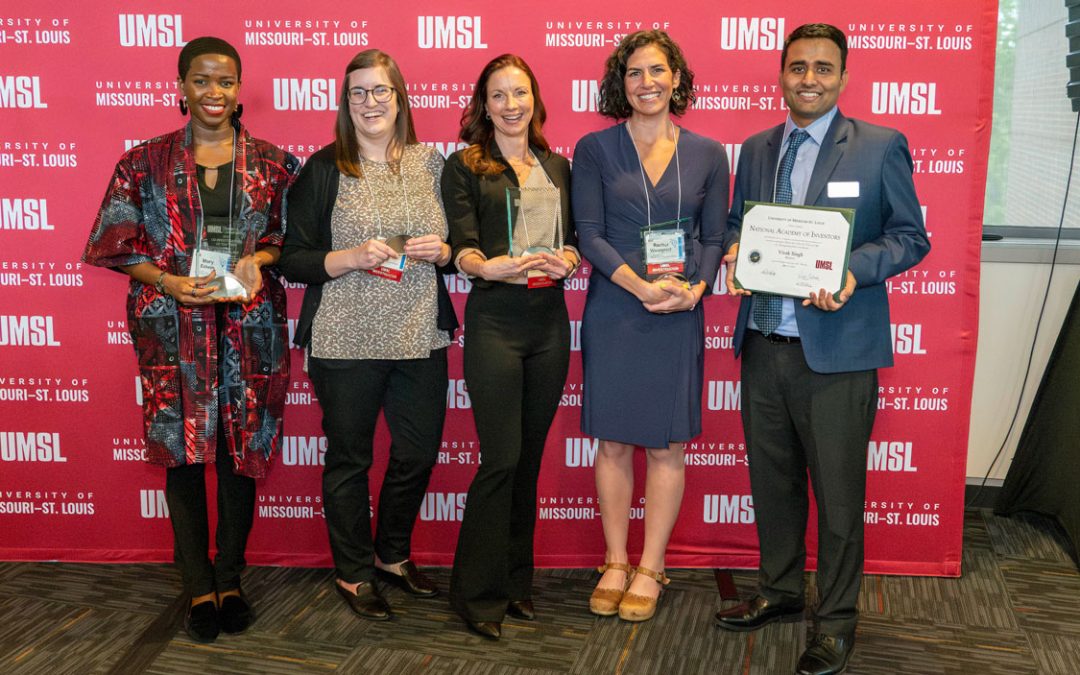
UMSL counseling professor Robert “Rocco” Cottone talks about the paradigm shift in counseling philosophy in a recent issue of Counseling Today. (Photo by August Jennewein)
Robert Cottone, professor of counseling and family therapy at the University of Missouri–St. Louis, shared his insight on the paradigm shift in counseling philosophy in a recent issue of Counseling Today.
Cottone, known to most by his middle name, “Rocco,” is a resident of St. Charles, Mo., and has been a counseling educator for more than 30 years. He continues to research vigorously, and his work is regularly published in peer-reviewed journals. He’s an expert on relationship theory in counseling and psychotherapy; marriage and family counseling; professional, spiritual and ethical issues in counseling; and vocational rehabilitation theory.
In the September issue of Counseling Today, Cottone discusses the transition of counseling philosophy over the years.
“Counseling theory has matured from its early focus on individuals, represented in the classic psychology-aligned theories of counseling such as psychoanalytic psychotherapy, person-centered therapy, rational emotive behavior therapy, behavior therapy and others,” Cottone wrote in Counseling Today. “Next came a focus on relationship structures in classic systemic therapies such as structural family therapy or strategic family therapy. Now there is an evolving focus on the social consensualizing of problems and solutions. This appears to be occurring in emerging therapies such as solution-focused therapy and narrative therapy, which are social constructivist in their underpinnings.”
He added, “How does all this talk about metatheory relate to counseling practice? Well, it means that counseling has matured as a profession. Counselors now can be guided by large theoretical frameworks as they apply specific theories to practice. For example, the approach used by many counselors in a college counseling center likely will be quite different from the approach used by most counselors working at a family service agency. The college counseling center likely operates primarily from the psychological paradigm, and its counselors will accordingly apply theories that address individual problems as a focus of treatment. The family services agency likely operates primarily from the systemic-relational paradigm, and its counselors will accordingly apply theories that treat problems between and among people, following social systems theory’s emphasis on relationships. So, one’s setting and one’s practice may largely affect one’s style of practice.”
Visit Counseling Today to read Cottone’s full commentary.














